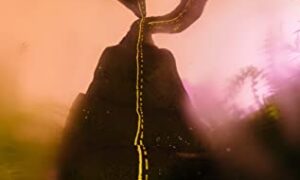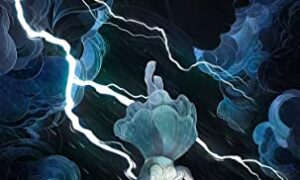 Cataract City by Craig Davidson
Cataract City by Craig Davidson
My rating: 5/5 cats





what did i do last night??? oh, nothing special – just went to craig davidson’s book reading, during which he totally outed me, pointing at me and saying “that’s karen from goodreads,” which made me turn bright red with – ACK- fourth wall breached!!! but also ACK! CRAIG DAVIDSON KNOWS WHO I AM!!!
which i am pretty sure means we are best friends now and gives me even more incentive to push this book at you. DOOOOOO it.
…………………………………………………………………………………..
“You’ve got to be mindful, though, seeing as any creature who fails to accept its limits can be a danger to itself.”
this is such a perfect book, it feels wrong to even review it.
it’s got every little thing i love, all smooshed into one book: it’s a survival story, a coming-of-age disillusionment story, a smalltown hardscrabble grit story, and a criminal underworld story, all in one.
and structurally, it does that thing i love where all the tension in the ending-bits are echoes of the tension in the opening-bits – a complete thematic circle that doesn’t feel forced.
it is…majestic.
this is the second book i have read from davidson qua davidson; i have also read one of his pseudonymous books, and while i enjoyed both of the others, this one is absolutely the best. basically, it kills me.
it follows two boyhood friends; dunk and owe, from their first meeting in childhood through to where they find themselves as adults, and the decisions they made along the way that led them to an explosive and violent place.
it all takes place in cataract city, a small town on the canadian side of niagara falls, whose main source of employment is the nabisco factory, or “the bisk.”
Dunk’s father worked at the Bisk, too. Chips Ahoy line. Our dads carried the smell of their lines back home with them. It became a forever quality of their clothes. It crept under their skin and perfumed the sweat coming from their pores. I used to keep score at the Bisk’s company softball games; after a while I knew the batting order by smell alone: first up was Triscuits, second was Fig Newtons, third was Cheese Nips. The mighty Nutter Butter batted cleanup.
the book just drips with exhausted working-class dignity, despite all the men smelling like cookies and such. (this scent is treated almost as a mark of failure, until this wonderful turn in one of the later segments of the book that is one of the small, perfect moments on offer here) the major themes of the book are masculinity, damage, and failed escapes. and they are beautifully written:
Instead I went to Clancy’s on Stanley, ordered a shot of rye and a Hed. The man sitting across from me had a scar on his neck: thick and bunched up, the skin as smooth and pink as carnival taffy. His hands trembled as if he was forcing them to do so. A layer of sweat shimmered to the surface of my skin. Why was something always wrong with the men around here? I’d never noticed it as a kid. Why so many missing fingers? The men around here put their hands at the service of a mean utility. Those hands got crushed between rollers at the Bisk, melted to stumps by arc-welding torches at the shipworks. I wanted none of it, was humiliated by it in some untranslatable way. But here I was – part of the fabric again.
and
I caught a flash of the driver: in his mid-thirties, his face deeply seamed and his skin a queer off-yellow like a watery cat’s eye. He looked sick but probably wasn’t. It’s just how men grew up around here. My dad said Cataract City was a pressure chamber: living was hard, so boys were forced to become men much faster. That pressure ingrained itself in bodies and faces. You’d see twenty-year-old men whose hands were stained permanently black with the granular grease from lubing the rollers at the Bisk. Men just past thirty walking with a stoop. Forty-year-olds with forehead wrinkles deep as the bark on a redwood. You didn’t age gracefully around here. You just got old.
i can’t even begin to articulate what this book does to my reading-heart. there are so many neat parallels – so many busted-up dreams hinged on busted-up bodies, so many shattered illusions and settling-for-less and dog racing, dog fighting, people fighting, murrrrderrrr.
so many missed opportunities and things left unsaid.
so many small moments that twist the knife.
#thatpostcard
and this writing that is literary quicksand
I wanted to tell him how damn little I’d learned in the years since we were boys. It boiled down to this: it’s a lot harder to love than to hate. Harder to be there for those you love – to see them get older, get sick, be taken from you in sudden awful ways. Hate’s dead simple. You can hate an utter stranger from a thousand miles away. It asks nothing of you. It eats you from the inside out but it takes no effort or thought at all.
everything in it pulls my favorite strings, from the unregistered moments when a child starts becoming an adult
The man who took us into the woods was our hero, back when we were young enough to believe in those. Big heroes, you know? Larger than life. As you grow up you find most heroes are the same size as anyone else; their heroics are small, selfless and continual. Back then we believed in the ruddy breed of heroism depicted in the G.I. Joe comics we’d read on rainy afternoons in my basement, water trickling through the downspouts like clicking marbles. We believed heroes like that existed because the world seemed huge enough to hold them. The world still seems huge now, but in a sometimes depressing way that I can’t quite explain. As boys, it was only hugely unknown. Just because we’d never met such men wasn’t proof that they didn’t exist.
to the simultaneous push and pull of smalltown life
As I walked along the salt-whitened quay my mind drifted for an instant – one of those instants big enough to hold your entire life. I saw how a city could sink into you, trapping its pulsing heart inside your own heart – except it never feels like a trap. A trap snags you out of nowhere, violently and without warning. But I knew every inch of my trap, didn’t I? I knew the dirt path that led down under the Whirlpool Bridge to a fishing hole stocked with hungry bass. How to jump off the old train trestle in Chippewa and hit the rip of slack water so I could paddle safely to shore. Cataract City was like those fur-covered handcuffs you could get at Tinglers – Ed had come home with a pair of them after a stagette party, embroidered with the phrase “Prisoner of Love.” The city of your birth was the softest trap imaginable. So soft you didn’t even feel how badly you were snared – how could it be a trap when you knew its every spring and tooth?
how, indeed? but it is. of course it is.
i find it incredibly difficult to review books that i love – books that flip so many switches in me that it’s like a whack-a-mole game – i don’t even know where to direct my critical focus. i am overstimulated and all i can do is gurgle “good. book good.”
book good, people. book very very good.








